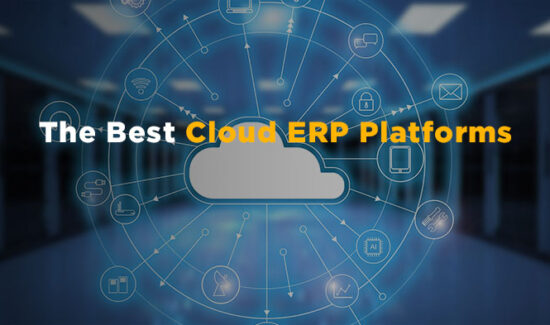How Small Businesses Can Benefit from ERP


Here at Solutions Review, we spend a lot of time talking about enterprise resource planning (ERP) in terms of large enterprises. In fact, people often assume that your standard ERP software is designed mainly to address the needs of large scale manufacturers and distributors. In reality, the benefits to be realized from ERP in a small business are just as significant as they are with larger organizations. The more recent software releases offer features that enable small businesses to easily access data and monitor inventory, all while removing or greatly reducing the costs of maintaining a complex IT infrastructure.
The modern workplace is becoming increasingly mobile, and that carries over to small business shops as well. New technologies make it easier for ERP to use .NET, SQL, and HTML5 across a number of devices including laptops, tablets, and smartphones. With the risk for small businesses much higher than larger organizations, its vital for a proper ERP system to be implemented; one that addresses individual mobile needs while simultaneously remaining aware of the unique context a business may itself in.
Widget not in any sidebars
ERP Systems in Small Businesses
In terms of what small businesses need to understand about ERP, Business.com writes, “Within a small company or startup, employees wear multiple hats. Everyone pitches in wherever and whenever the need arises (which is frequently). Who has the time to manually process multiple spreadsheets and separate mountains of data? ERP systems geared towards small businesses are able to blend and automate key business functions such as order processing, production and finances.”
The eternal question – cloud, on-prem, or hybrid, is one that many business owners have been asking for years. With growing competition in the business world, many small business owners and manufacturers are looking for ways to improve the bottom line, expedite business processes, and reduce costs. Modern ERP allows business owners to control a number of different features, that have traditionally been spread across multiple programs, all within one software system.
Cloud-based ERP systems are an ideal solution for small manufacturers because it eases the collaboration in manufacturing throughout the entire supply chain. Small businesses utilizing cloud ERP solutions are well prepared for the changes that accompany growth, providing a cost-effective environment that backs up vital information while also offering full control of business operations. One of the major bonuses of a cloud-based ERP system is that IT infrastructure and its associated costs are essentially outsourced, relieving business owners of the responsibilities of maintenance. Small businesses are sometimes a bit apprehensive to implement a cloud based system, because of concerns related to security and opt to a hybrid approach instead.
Benefits of ERP
In summation, small businesses can expect a number of benefits from their ERP systems.
- Reduced complexity: Instead of each department within a small manufacturing company having their own information system, all relevant data can be shared and accessed across all departments. This essentially eliminates the need to re-enter or export data, which yields a decrease in errors, increased productivity, and reduced expenses on HR.
- Better decision-making: By providing real-time data, small business owners can making difficult decisions easier and are able to quickly respond to changes in the business environment.
- Flexibility, scalability and growth: Because of the increased data clarity that an ERP system provides, staff are able to adjust their attention to manage increasing volumes of business. This helps small business adjust to their growth without ever feeling disorganized or overwhelmed.
- Improved data access: Controlling data access properly is always a challenge in organizations. With an ERP system, this challenge is overcome with the use of advanced user management and access control.
Looking for more? Download our ERP buyers guide for free and compare the top-24 products available on the market with full page vendor profiles. The guide includes four key capabilities to look for in an ERP solution, plus five questions to ask yourself and five questions to ask the software provider before purchasing. It’s the perfect resource for anyone looking to find right ERP for their business/organization.
And don’t forget to follow us on Twitter, Facebook and LinkedIn for all the latest in the ERP space!

























